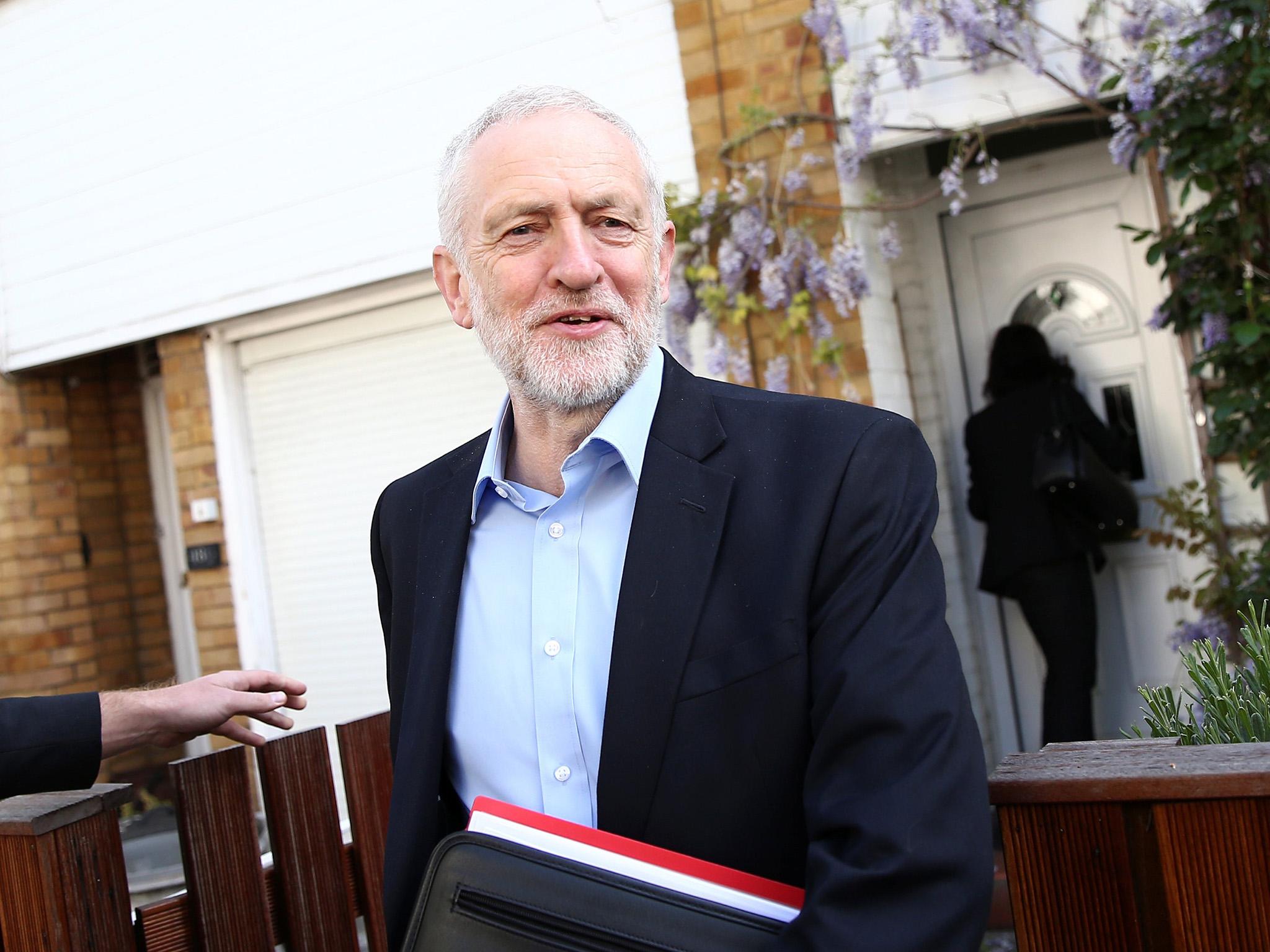If Macron wins the French presidential election, defeated Labour MPs might form their own party too
Labour’s centrists see echoes in Macron of the fresh-faced Tony Blair, but they are also fascinated by the success of his En Marche! party, launched only 13 months ago


Ignore the spin from all the parties on the local election results. The Conservatives are in the unusual position of playing down their strong performance because they do not want people to think next month’s general election is a foregone conclusion. They will struggle with that one; Theresa May is clearly on course for victory, and it could be big.
Labour’s spin – we avoided a “wipe out” – does not mask poor results in the English local elections and that it is a party with no chance of winning power nationally. The most worrying trend for Labour is that working class voters who deserted it for the now irrelevant Ukip are going to the Tories. There was a “Corbyn factor” on the doorsteps, as Labour’s general election candidates also testify. Many will now fear the same fate as the councillors who lost their seats.
When May called a snap election, some of Corbyn’s internal critics put a brave face on it: at least, they said, a defeat would mean the end of Corbyn, and a new, mainstream leader. Now they are not so sure.

Perversely, a crushing defeat on 8 June would help the left’s chances of holding on to the levers of power in the party. Pro-Corbyn MPs in the last parliament are defending bigger majorities than his opponents and so are more likely to hold their seats. This matters because MPs decide which leadership candidates are on the ballot paper. It means a crushing Labour defeat could prevent Corbyn’s critics keeping a left-winger out of the race.
However, Labour’s centrists have found a new ray of hope in Emmanuel Macron, who is likely to defeat the National Front’s Marine Le Pen in the French presidential election on Sunday. To say that Blairites have been cheering on Macron, a pro-European, economic and social liberal, is a huge understatement. Inevitably, they see echoes in the 39-year-old of the fresh-faced Tony Blair who won a landslide 20 years ago.
Of course, we can’t read too much into an election in another country. Yet Blairites relish the success of the former banker, who might look like a symbol of the liberal elite but delivers a populist message from the centre ground. Peter Mandelson, one of New Labour’s architects, told a Milken Institute conference in Los Angeles this week: “If he wins, Macron will do so because of what he isn’t – neither old mainstream nor ultra-right. His appeal is that he is new, young, centrist and credible.” Lord Mandelson suggested it was based on “listening to voters, understanding what is going on, rethinking, regrouping and fighting back.”
There is also an unspoken reason why New Labour types are fascinated by Macron. He has not only gone from nowhere to being the front-runner but, remarkably, he launched his En Marche! party only 13 months ago.
In the short term, Labour centrists would rally behind Yvette Cooper or Chuka Umunna, who are both likely to run in any leadership contest. But if the left retained control, a breakaway centre party might be formed. The local election results make this more likely; some New Labour figures believe there will be nothing to salvage from the wreckage left by Corbyn Labour next month, so the best thing would be to start over.
Blair is back on the scene to oppose Brexit. His new Institute for Global Change would not become a party but could help to fund one; former business donors who now shun Labour would put money in too. Blair would not be the right man to lead it; he is big enough to admit he might repel as many people as he would attract.
Breaking up your political family is hard to do. Memories of the 1981 breakaway by the Labour centrists who formed the SDP are still fresh; their project failed (just) and helped keep the Conservatives in power for 18 years by splitting the anti-Tory vote.
“I think it is incredibly difficult to start something new,” Blair told his former communications director Alastair Campbell for GQ magazine. But the fact that Campbell pressed him about the creation of a new, pro-European party was revealing in itself.
If it happened, Corbynistas would dismiss a new party as a gang of “bitter Blairites.” To counteract that, the proponents would seek to attract Liberal Democrats and Conservatives on the Cameron-Osborne wing of the party frozen out by May.
Europe would be the new party’s defining crusade, and allow it to cut through party lines. But to be successful, it would almost certainly require a public backlash against Brexit that does not exist right now and might never materialise. May also has eyes on the centre ground prize, as we will see shortly when the Tories unveil their manifesto. Her snap election means that Brexit might be a long done deal by the time any new party might fight its first general election in 2022. By then, the public may have moved on.
Join our commenting forum
Join thought-provoking conversations, follow other Independent readers and see their replies
Comments
Bookmark popover
Removed from bookmarks